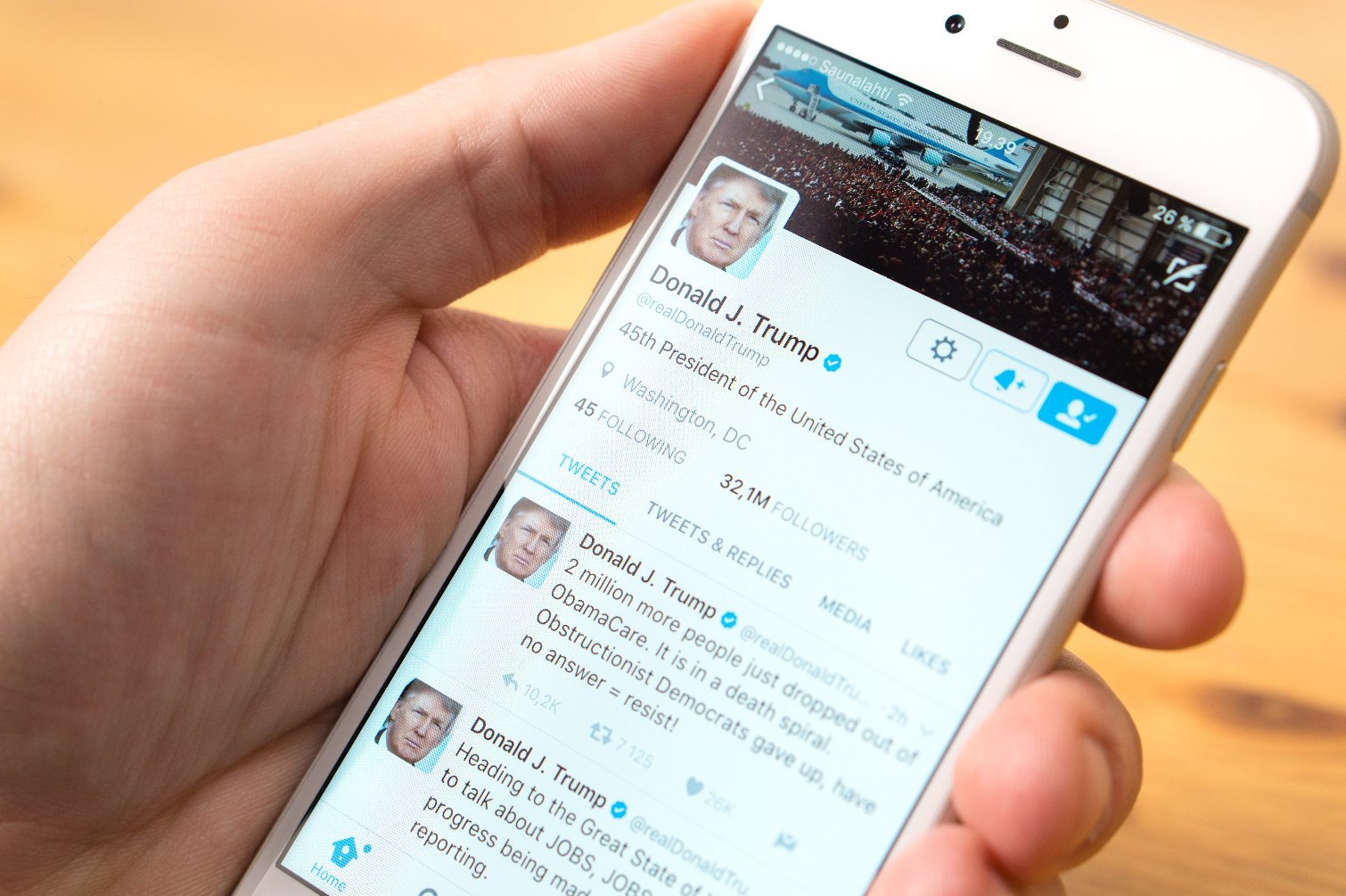Trump Says Apple Building Three Big US Plants: Will It?
The president tells the Wall Street Journal that Apple's building "three big plants." But the devil will be in the details.
Could your next iPhone be made in America?
In an interview with The Wall Street Journal today (July 25), President Trump said that Apple CEO Tim Cook promised to build "three big plants" in the U.S. as part of the Trump administration's push to return manufacturing jobs to this country.

Update 7/26 7:43 am ET: According to the Los Angeles Times, Apple declined to comment on Trump's claims. We have also reached out to Apple for comment and will update this story should we hear back.
Much of Apple's product line, while designed in the U.S., is assembled overseas, primarily in China, where labor costs are lower and the supply chain of components is already in place.
"I spoke to [Mr. Cook], he’s promised me three big plants — big, big, big,” the Journal quotes Trump as saying. “I said 'you know, Tim, unless you start building your plants in this country, I won’t consider my administration an economic success.' He called me, and he said they are going forward.”
MORE: iPhone 8 Rumors: What to Expect from the 10th Anniversary iPhone
There are several reasons to treat this announcement with some skepticism. For starters, Apple didn't join in the announcement, and it declined to comment to the newspaper. Also, as New York Times reporter Vindu Goel noted in a series of tweets, Apple doesn't have much to do with manufacturing, even overseas: it owns one plant in Ireland, and assembly at the sole American facility in Austin, Texas, is handled by a partner.
Apple's "whole business model relies on using other companies to make its products," Goel tweeted.
Jason Snell, editor of SixColors.com and a long-time Apple Watcher agreed. "It seems unlikely that Apple would build three giant manufacturing plants in the U.S., but the company has experimented with U.S. production and it's not beyond the realm of possibility that it would experiment more in the future," Snell said. "I doubt it would ever be a major part of Apple's production line."
A more likely scenario, Snell added is that Apple would open "more data centers and expand other aspects of its research and development efforts in other places, rather than the mechanics of building hardware from scratch."
Get instant access to breaking news, the hottest reviews, great deals and helpful tips.
Still, Apple has indicated that it's at least open to bringing back some manufacturing work to the U.S., even if that work is done by other companies. Appearing on CNBC back in May, Cook said that Apple will spend $1 billion to promote advanced manufacturing jobs in the U.S. As part of that program, Apple's already invested $200 million in Corning to support research and development and glass production at a Kentucky plant. Corning makes Gorilla Glass, a protective material found in many smartphones.
MORE: 15 Best iOS Apps You Can't Find on Android
In another sign this talk of "big, big, big" plants isn't entirely bluster, Taiwan-based assembly giant Foxconn appears likely this week to announce plans to bring a manufacturing facility to Wisconsin. The plant could employ as many as 10,000 workers. Foxconn handles iPhone assembly for Apple as well as manufacturing for other tech firms.
It's often assumed that cheap overseas labor costs are what keep companies like Apple from building more things in the U.S., but that's only part of the issue, Snell said. "It's true that American workers are more expensive and that might raise the cost of Apple products, but the larger issue is the availability of a complex supply chain providing the parts for Apple to assemble into devices," he said. "Without that supportive supply chain, moving parts in and out becomes even more expensive and inefficient.
The bottom line: the devil's in the details and until we hear more of those from Apple, it's unclear just what impact this will have on your next iPhone or iPad.
Philip Michaels is a Managing Editor at Tom's Guide. He's been covering personal technology since 1999 and was in the building when Steve Jobs showed off the iPhone for the first time. He's been evaluating smartphones since that first iPhone debuted in 2007, and he's been following phone carriers and smartphone plans since 2015. He has strong opinions about Apple, the Oakland Athletics, old movies and proper butchery techniques. Follow him at @PhilipMichaels.
-
John Fitzgibbon Well if he keeps his promises like you do I'm sure you will see three plants. Where's he going to plant and water them??Reply -
Hamish_2 America has few rare earth elements. China has 90% of the rare earth elements on earth. Apple knows this and builds its factories there. Trump knows this and suggests Apple start losing money to make Trump look clever.Reply -
pbug56 So where will Foxconn find cheap slave labor in the US? Maybe prison factories? Lots and lots of fraudulently acquired H1B visas and badly underpaid imported workers? It would still let Apple claim to be building in the US.Reply
 Club Benefits
Club Benefits






